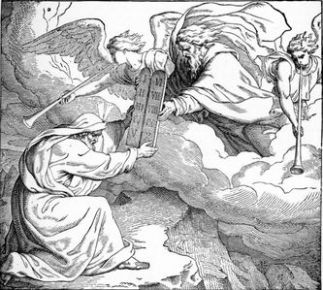There is much debate on this question. Many Reformed thinkers see that the Law has 3 main purposes: to reveal sin, to be a positive guide for the believer, and for civil use. Other theologians, mainly in the Lutheran camp, would see the Law more primarily as a means toward revealing sin and pointing us to Christ. Still others see no real application for the Law. Dispensationalists see that the Law in its fullness has been fulfilled in Christ, and that we are now driven by the Law of Christ (Gal 6:1-6), meaning we are to strive toward being like Jesus. He is the ultimate embodiment of the Law, and so we look to a person rather than a list of rules.
While I can see a lot of truth in the Dispensationalist camp, and really tend to shrink at the Reformed understanding (mainly because Reformed thinkers would generally agree that the Mosaic Law is still in effect in its moral codes today), I still see some truth in the Reformed understanding of the Law as being a positive guide. My reason for this is because there are many moral expectations in the Mosaic Law that were set in place before it was instituted. For instance, “do not murder”; the expectation that man should not take a life of another is explicit in Cain’s guilt (Gen 4), and is specifically prohibited for Noah (Gen 9:6). So, although I would say that the Mosaic Law was fulfilled in Christ, moral expectations still abide.
And besides this, I can also appreciate that God’s moral character is eternal, and he does not change. He is the same yesterday, today and forever (Heb 13:8). And so we can read the Mosaic Law, for instance in Leviticus, learn about God’s unchanging character, and live that out. Paul says in 1 Corinthians 10 that we are to learn from Israel’s example, and not fall into the same sin they did. This implies that we can learn moral lessons in the Old Testament, and (if we are filled with God’s Spirit) live them out. Otherwise, what did God mean when he told Israel that the heart of the New Covenant is divine enablement to live out the Law by his writing “it on their hearts” (Jer 31:33)?
However, I would tend to disagree with the Reformed view that these moral expectations are a continuation of the Mosaic Law. What else can Christ mean in Matthew 5:17 when he says that he came to fulfill the law? Which law? He explicitly says, the “Law [and] the Prophets” (5:17). So when Christ said, it is finished, he was not merely pointing to his final payment for sins, but to his active fulfillment of God’s righteousness. So I would agree with the Dispensationalist by saying that we are not bound (in an official sense) to obey the Mosaic Law.
Finally though, I heartily agree with Lutherans (and all theologians who affirm human depravity) that, without regeneration and divine enablement, the effort to live out God’s moral character by one’s own power will only fail. In fact, as Paul says in Galatians 3:10, that all who “rely (as a means toward righteousness) on the works of the law are under a curse”. Meaning, if you think that apart from justification and the regenerating work of the Spirit, that you can work yourself into the kingdom of God, you will find yourself even more condemned (Mark 10:17-21). In fact, Paul says that the Law is a prison to those who would try to be saved by it (Gal 3:22). And in this way, the Law reveals the wickedness of those who think they can abide by it, and who believe they don’t need Christ. And so, even Gentiles, who would desire to be a good and moral person (see Rom 2:15), will find that they can’t abide by their moral principles forever, and will find themselves in need of saving.
I love Luther’s remarks about this purpose of the Law from his Commentary on Galatians. He says, “Now, when a man is humbled by the law, and brought to the knowledge of himself, then followeth true repentance…and he seeth himself to be so great a sinner that he can find no means how he may be delivered from his sin by his own strength, endeavor and works…Here then cometh in good time the healthful word of the Gospel, and saith: ‘Son, thy sins are forgiven thee’ (Matt 9:2). Believe in Christ Jesus crucified for thy sins, [and] if thou feel thy sins and the burden thereof, look not upon them in thyself, but remember that they are translated and laid upon christ, whose stripes have made thee whole (Isa 53:5)”.
And I think that by looking to Christ, and finding this wholeness in him, only then can the law be used positively by the work of the Spirit in us.
